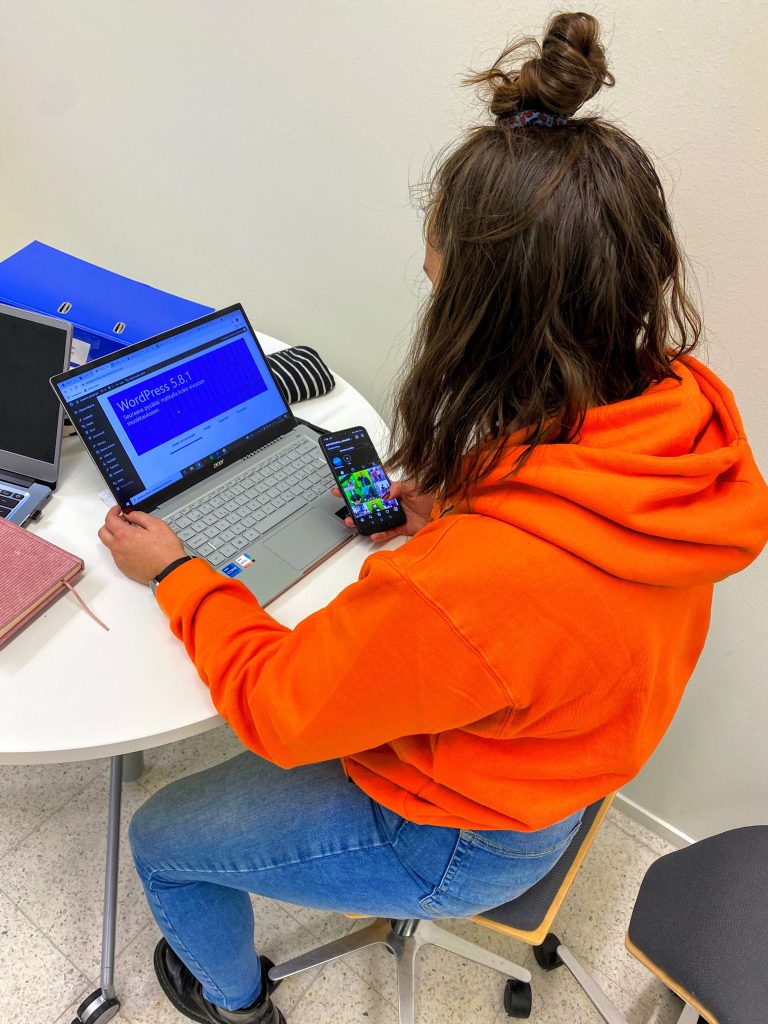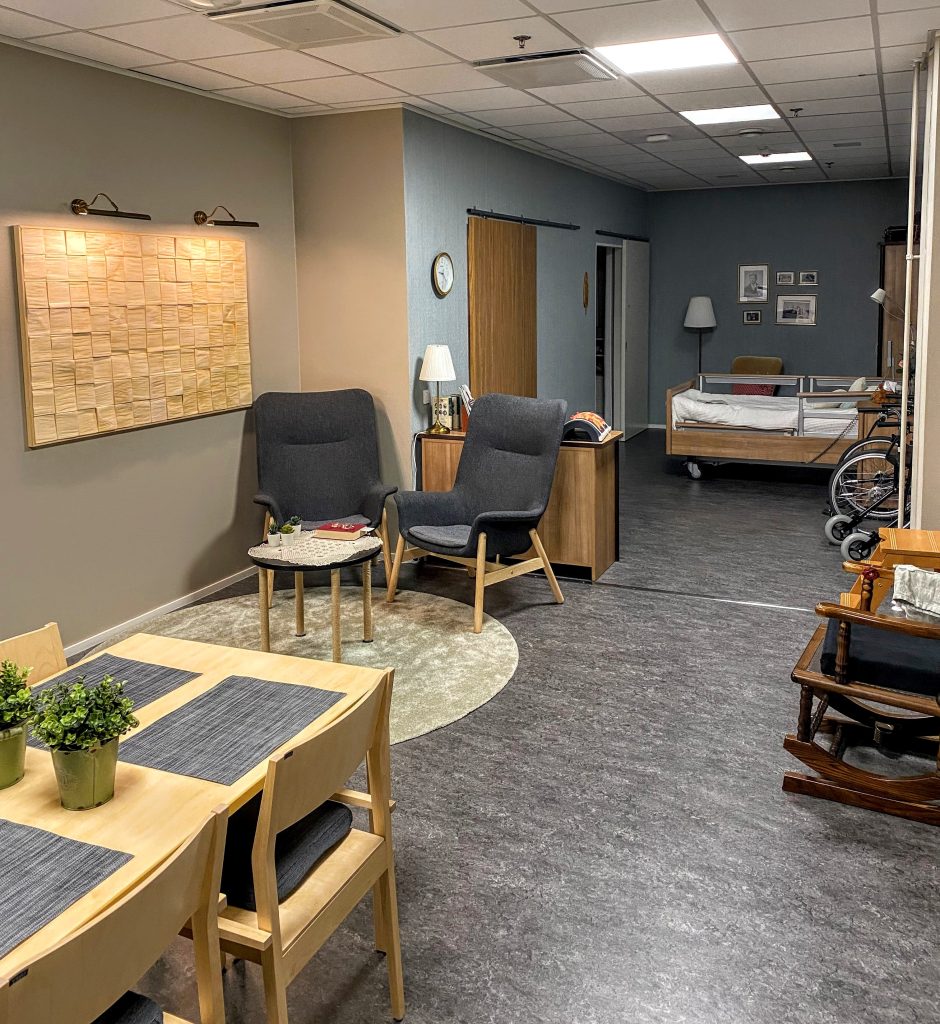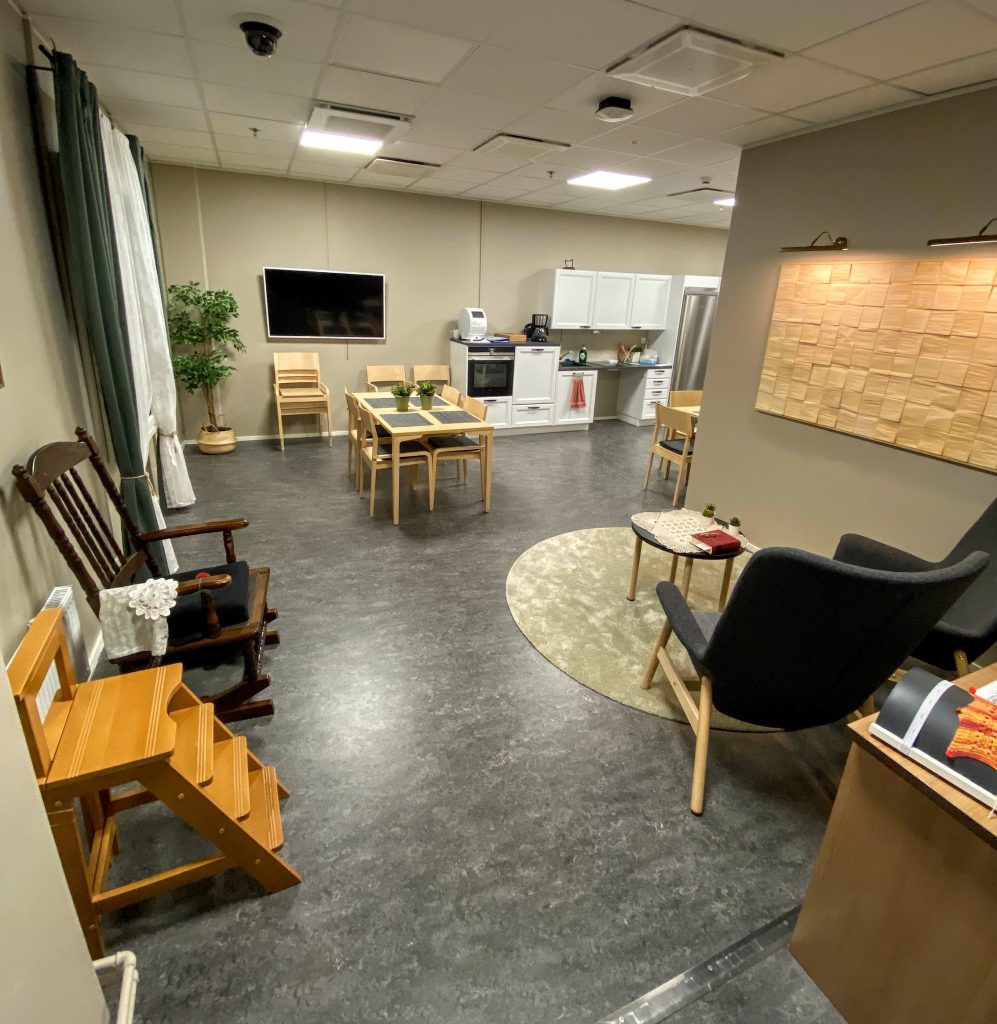Written by nursing student Tatenda Malan
This blog post is based on a podcast episode of Mental health and wellbeing made by Service centre Soteekki and is published on September 5th, 2021. Podcast is part of the StudyWell-project, by the students for the students and staff of SAMK. You can find original Podcast here (link) www.campusmowe.fi/podcast. In this episode special quest Katja Warwick-Smith was interviewed by physiotherapy student Andrew Warwick-Smith. This text includes direct quotations from the interview just to make sure the meaning is not being changed or misunderstood.
Katja Warwick-Smith is the Assistant Executive Director of Clinical Service Development Mental Health with Hamad Medical Corporation (HMC), Doha, Qatar. Katja Warwick-Smith is a mental health expert with many years of experience in Finland, UK and Qatar. Currently, She leads HMC’s virtual mental health services, including the National Mental Health Helpline.
None of this is rocket science. Probably nothing new. However, we all need reminders on regular basis, because we’re human beings and life does get very busy. When we talk about well-being, it really is about things that bring a smile on our face, distracts our mind and is sustainable and those are kind of the core elements. We all have our unique preferences. What gives us that sense of wellbeing and happiness. Here are a couple of coping strategies that have a lot of evidence behind them.
Stay connected
According to a recent study, social networks are number one protective factor against depression. So, keep you your social network close. Improve your social connections and connectedness.
When we talk about detaching from our networks, it doesn’t happen overnight. We’re really busy we’re tired working long hours, whatever it might be. Looking up to the children, whatever you know, the friend calls and says, “let’s go for a coffee”, we might say, “Oh to be honest, I’m really tired. I just want to watch a movie or something”.
It’s okay, every now and then but just pay attention that you know all of a sudden you don’t realize that “oops! I haven’t actually seen anyone for weeks and weeks”. When you’re on your own and you have troubles and things in your mind, you ruminate on them. You keep thinking about them and they actually grow much bigger than what they really are.
When we are with friends, we never mind, distract, also speak, ventilate get it out of the system, and that can help to put things into perspective. Hopefully that friend will also help. You laugh a little bit because laughter actually releases the happy hormones that will tackle your stress hormones and it helps you to clear your mind from whatever it is that has been troubling you. It’s really important to stay connected.
Exercise
My personal, absolute favourite, coping strategy is exercise. I’m sure everyone has heard this one before, but the benefits are really evident in literature. You know when you have stress that peaks up, your body releases the stress hormones. In other words, you go to flight or fight mode, and that is what makes you stronger and faster and better at decision making, but those stress hormones pretty much impact every major organ in your body.
When we exercise, not only does it burn out those stress hormones at the time, in other words, helping your muscles to relax and helping you to feel that sense of well-being. But the evidence clearly shows that when you exercise regularly the next time your stress peaks, your body releases, less stress hormones, and that is actually a really important protective fact. Because um, you know, if you think about with the stress hormones your bowels and blood pressure go up, but if you’re on that peak all the time, you risk a cardiovascular event.
Eventually, if you have that hyped up a situation all the time, your body is releasing more glucose to give you more strength. Well, eventually, you risk diabetes. Every single organ is affected and hence exercise not only helps you in that immediate situation, but also protects you later on thinking going forward and with well-being. Nothing is about perfectionism. You don’t have to pay a lot of money for a gym. You never wanted to go to run around the house, throw the kids around that will make all of you laugh a lot. You know dance in the kitchen when you’re cooking, anything that breaks a little bit of a sweat makes you feel good and puts that smile on your face, that is, about well-being and making sure that it’s sustainable.
Mindfulness
If you don’t have time for that, do something that you have time for. Another thing is about taking notice. This is known as mindfulness. It is very popular stress management strategy. There are all sorts of apps, very good websites and trustworthy ones. It’s all about being present in the moment and again it’s about clearing all those troubles out of your mind and paying attention to where you are.
When you go for the walk in that park, don’t think about what happened at work today or what will happen tomorrow? Look around! What are people wearing? How green is the grass. What colour is the sky? It’s all about being present, and psychologists call it everyday mindfulness.
When you brush your teeth, don’t think about anything else, except which tooth have I brushed. Did I do it well? I need to do a little bit more there. It’s about being present and focusing on whatever it is that we’re doing, and these are the moments that help us zero in.
In other words, we have peaked with our stress and we talk about accumulative stress throughout the day when we regularly take moments to bring it down. The total stress doesn’t build up to quite so high, which again protects us both psychologically and physically.
Another really well evident strategy is about learning and again with well-being. It’s not about your master’s or PhD. It’s about something little. First of all, focus your mind because you can’t learn if you don’t concentrate. Furthermore, it can give you a great sense of achievement when you actually do learn that you know one word in a different language per day or something manageable.
One really good thing to keep in mind is kindness. You know giving to others saying, thank you, smiling at a stranger. You know it makes us feel good when we see that response, and we have just given someone else, a very positive message.
Diet
you just can’t talk about well-being without mentioning these one of them is diet. wellbeing is not about perfection. Go crazy, every now and then with the takeaway, but make sure you have some healthy structures in your diet, and one really important thing to remember is that ongoing stress brings down our immune system. We need that healthy diet to push it up. Of course, you know if we have heavy meals and so on, we feel tired and bloated and that’s not a sense of wellbeing either. So little things like thinking about have you had your veggies and fruits today can make a big difference.
Sleep
If we have a heavy meal late in the evening that can affect the quality of our sleep. Sleep is the final point. Rest is the time when our body and our mind charge the batteries. I know we all get busy, don’t always get enough sleep
It really is about those conscious choices, and you know again, nobody can do it for us. We have to go through this process of stop self-check. How am I doing am I getting worked up? Where am i on that continuum of feeling on top of the world, or feeling that I’m overloaded and overwhelmed when we recognize something is going on? What’s triggering this, what’s causing me to feel this way?
If you can deal with it deal with it, take a few hours just to sort it out, and that stress is gone. If you can’t resolve it, refocus your efforts to managing actively that stress that it’s causing and when you accept that okay, you have something you can’t change, you tell yourself, I can’t change it at the moment, but it will be okay, don’t know when, but it will get better and that’s a really powerful little psychological threat.




